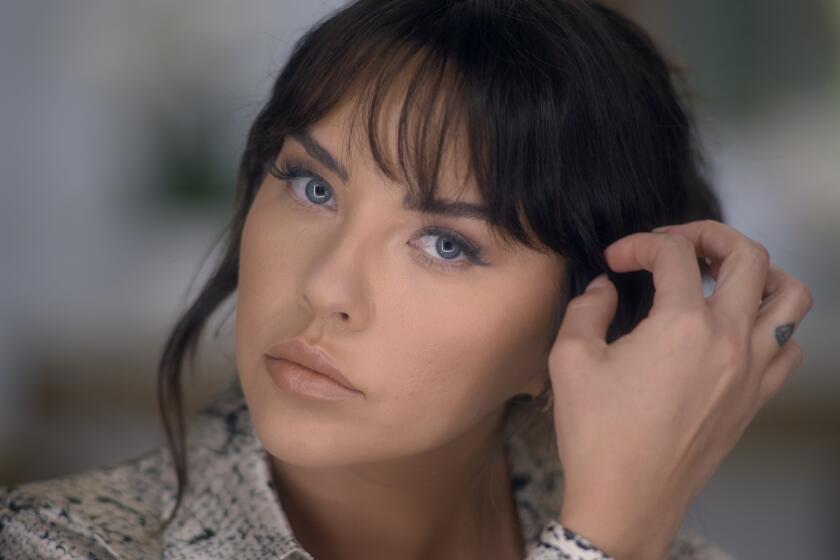With Erin Lee Carr’s ‘The Ringleader,’ Rachel Lee finally tells her side of the Bling Ring case
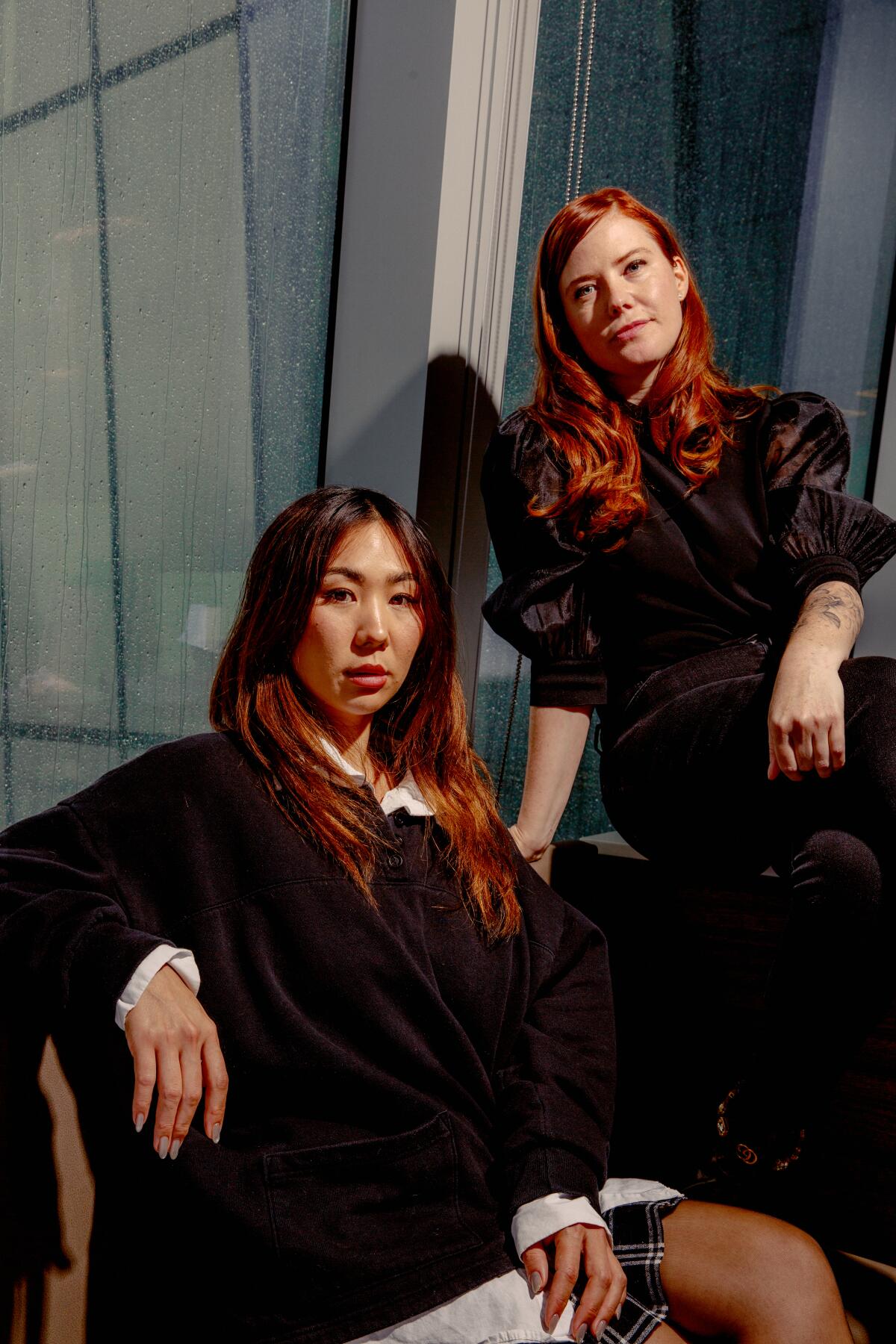
- Share via
For those coming of age in the early 2000s, the story of the Bling Ring case was well known — it was a string of burglaries pulled off by teenagers and young adults who were drawn to the allure and status of celebrity in Hollywood. The story was a media sensation that played out on the reality show “Pretty Wild” and it even inspired Sofia Coppola’s riveting 2013 film “The Bling Ring.” While there were a handful of players in the Bling Ring, the face of the operation in the media became Alexis Neiers. But there was also the alleged “ringleader” — Rachel Lee — who famously never spoke about her time in the Bling Ring. That is until now.
Lee, now 33, is the subject of Erin Lee Carr’s incisive new documentary premiering Sunday on HBO, “The Ringleader: The Case of the Bling Ring,” which allows Lee to share her perspective of the events that unfolded while simultaneously holding her accountable and letting viewers wrestle with the question: Can people change?
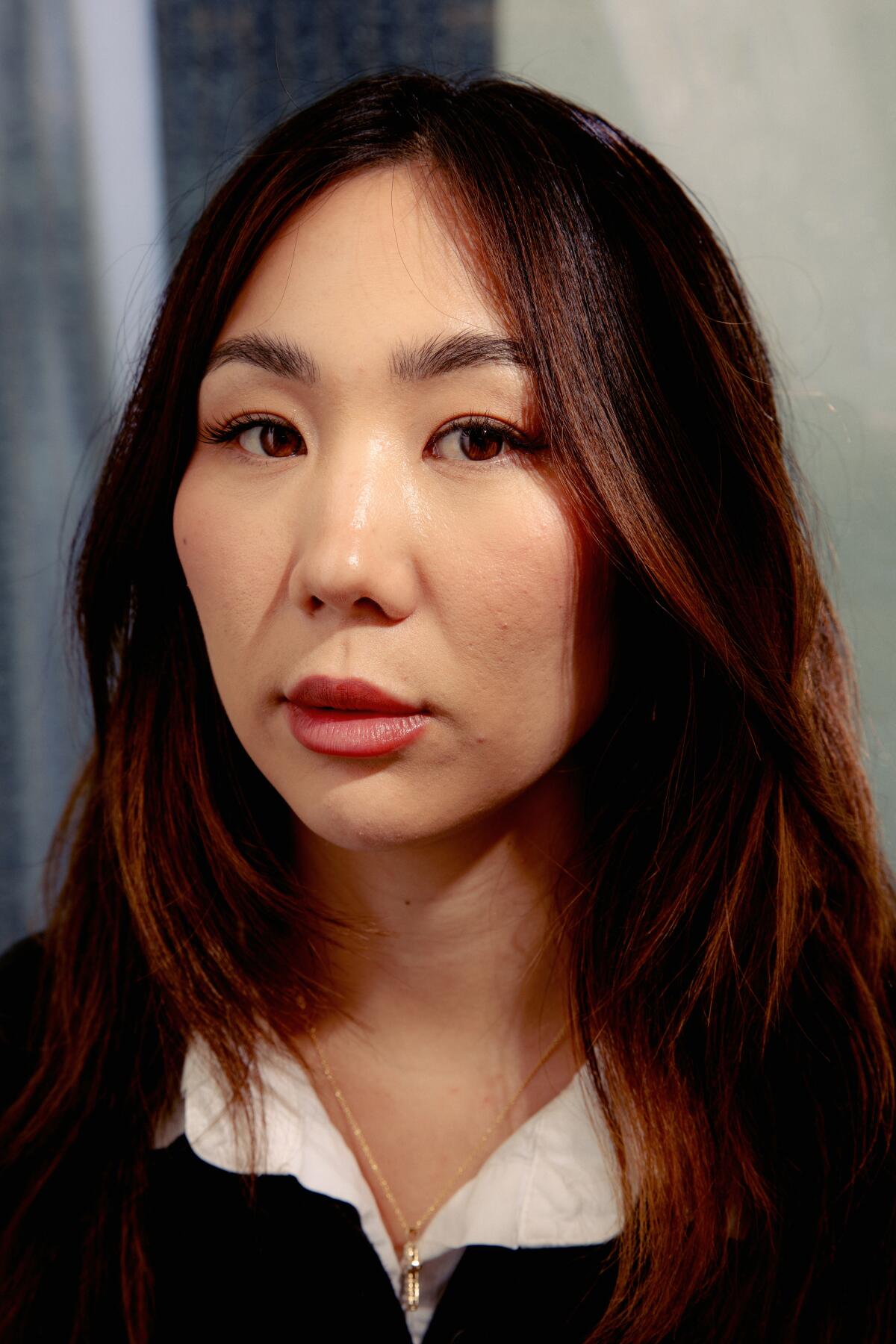
Lee currently lives a life that appears antithetical to her debauched teen years. Since 2017, she’s been a hairstylist who keeps a tight circle of friends, rarely goes out and has an affinity for crystals. During a rainy afternoon this week, she’s perched over a table at a restaurant in the Chelsea neighborhood in Manhattan across from Carr, unassuming, sporting a dark crew neck sweater, with a collared shirt and tartan skirt. As she replies to questions in between sips of ginger tea, her shoulders are hunched, and she often takes long pauses — squeezing her eyes shut before she speaks, as if she’s still processing the events of 2009 all over again.
Through the years, Lee says she turned down around 10 interviews. “It started in prison actually with Sofia Coppola’s assistant trying to get me — reaching out to my lawyer so they could come visit me,” she says softly. “That’s the first time I ever declined anything. And then from there it was just, ‘no, no, no.’”
But as Lee was deciding between working with Carr and another project, it was the director’s empathetic approach that made her finally want to tell her story.
“I think what really turned Rachel off was pressure,” Carr explains. “It was really important to show Rachel that we don’t have to do it exactly now. Let’s just keep talking, and let’s figure out what the story is.”
With “blind faith” and feeling inherently connected to Carr because of astrology, Lee took the leap. “She allowed me to feel like myself,” Lee says.
They spoke to the L.A. Times about the documentary (whose interviewees include Times columnist Amy Kaufman) and Lee’s decision to finally open up. This interview has been edited and condensed for clarity.
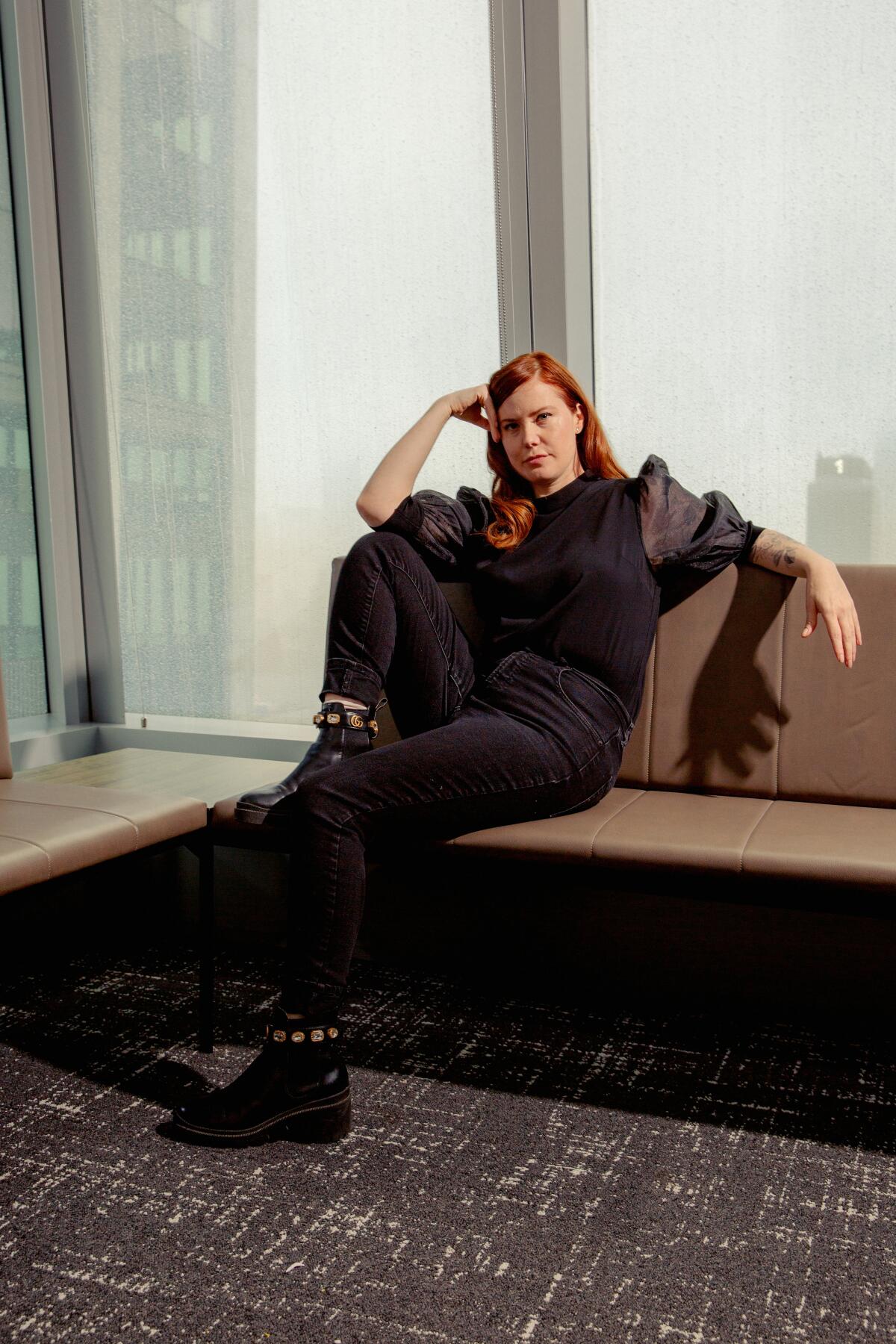
What inspired you to want to do this documentary?
Erin Lee Carr: Looking at adolescence and teenagehood has always been a beat of mine, and I really wanted to find a crazy 2000s story that was [from an] earlier era. I knew there was more to the story because this huge perspective was missing from the narrative. And I think that in the interviews that came after, about the Bling Ring, there was this tremendous need and push to label Rachel as “the ringleader.” But she never came forward. So [I was] trying to understand and unpack the story, and it was a group of kids turning on one another during a huge traumatic event.
Rachel, this is your first time ever giving an interview about the Bling Ring. Why now?
Rachel Lee: Honestly, because [of] Erin. Any other reporter or production, I was always shaking. When I met Erin, I just felt like I was talking to a friend — like a human — and I wasn’t being attacked. I could slowly just open up, and it happened organically through blind faith.
Carr: To add to it, I think what really turned Rachel off was pressure. She was actually choosing between working with me and another project. It was really important to show Rachel that we don’t have to do it exactly now. Let’s just keep talking, and let’s figure out what the story is. We’ve grown close over this time period, and it’s very intense trying to be a journalist and also spending so much time with this person.
In the Netflix documentary, Alexis Neiers says she saw you while she was getting her hair done at the salon where you worked. What do you recall about that experience?
Lee: It’s really funny that she said she “thinks” because I literally washed her hair, and she said, “When did you get out?” That moment was intense because her and I were never friends before. There were my coworkers who I didn’t know yet, and I was just freaked out. I actually didn’t watch the Netflix documentary, but I feel like my friends have just told me so much about it. [However], I have seen the Sofia Coppola “Bling Ring.”
The former reality TV star opens up about the 2008-2009 robberies and her journey to healing in Netflix’s ‘The Real Bling Ring: Hollywood Heist.’
You’ve stayed off the grid for a long time. How did you manage to do that?
Lee: It was kind of easy actually. I went into hiding mode. I just had to say “no” to these people, keep my circle really small and loving, and be really careful about my social media.
Other than that encounter with Alexis, have you spoken to any of the other members from the Bling Ring?
Lee: Alexis came to the salon, and that was about it other than actually Diana [Tamayo]. We have a mutual best friend, so there’s times when we’ll briefly just speak, but there’s no relationship with anybody from the Bling Ring.
Something I was curious about was the stark difference between who you were before you were incarcerated and after. How did prison change you?
Lee: I usually [get] very emotional when I think about prison and talk about it. It changed me in every single way possible, even physically. One of the biggest things that really changed me from prison was I didn’t realize how vain of a person I was. The physical part of prison, not having mirrors, was very interesting because when I couldn’t look at myself. I asked myself, “Who am I?” And I felt really empty inside. I consider [prison] my birth. I started over because I had no foundation, I didn’t have any moral compass. In there, I got grounded with who I wanted to be. I want to be a good person. I want to be a kind person. I want to be a strong person — I’m working on that. I want to be an honest person.
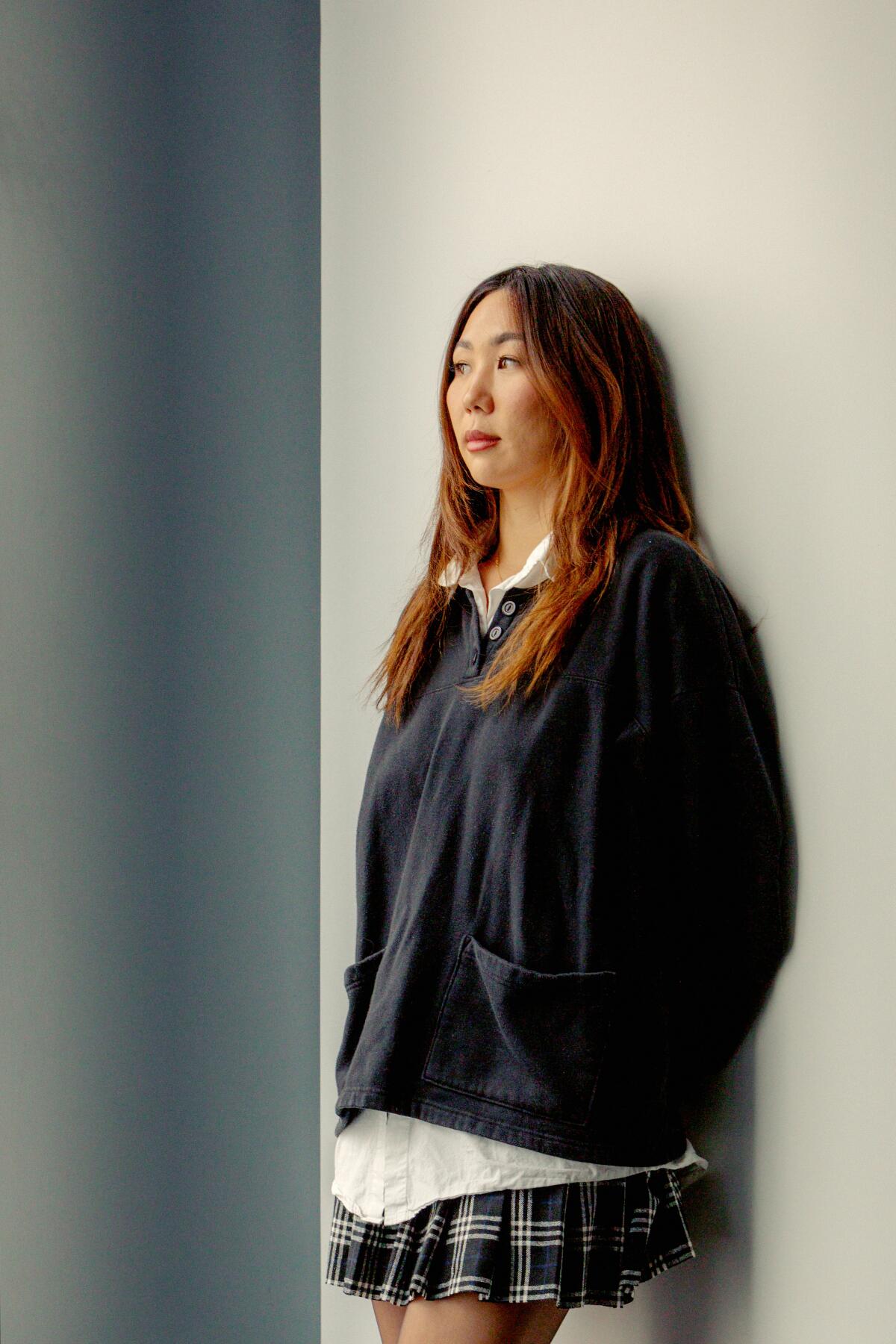
There’s a point in the documentary where you’re speaking and afterward, you aren’t sure if what you said is the truth or a lie. Do you still struggle with that a lot?
Lee: I still struggle with that, and usually when I’m talking to somebody, I’ll preface it and say, “I don’t know if this is made up in my mind or if it’s real. So just take that information.” Because in my head I’ll see things and sometimes it’s hard to recollect if it was a dream or real — like a scene at a party or little moments like that. So I try to just speak from what I know for sure, and if it’s something that I’m guessing about, I’ll just preface and say, “Hey, I don’t know if this is totally true, but it’s in my mind.” [It’s] breaking out of the habit of being a compulsive liar.
Carr: And I think you got so used to lying as an adolescent in high school. Sometimes we are products of our former selves, and it is very important for you to be your own person, to be sort of rebirthed from that experience. But the vestiges of ourselves remain, and we have to fight against that. Just in the same way, I have to fight — being a person in recovery — against going back to that place.
‘Bling ring’ confession helped break celebrity burglary case
Calabasas, where you grew up, is a predominantly white area, and in the documentary, you address how you felt different and grappled with racist comments and self-hate. Did that play a part in the origin of the Bling Ring and that desire to emulate celebrity?
Lee: It wasn’t necessarily to emulate celebrity, I just didn’t like me. I was born here, so I didn’t actually visit Korea until last year, but I knew some idea about my culture because of my grandparents and my parents. I was just such a minority at my schools that I felt too different. And then at my high schools, the word “chink” would just roll off people’s tongues. I didn’t realize how delusional I was about myself until prison. I didn’t realize how much I hated myself, how much I hated being Asian and how much I wanted to be white. I just would ask God all the time, “Why did you do this to me? Why did you put me in this position where I look so weird compared to everyone?”
That’s so heartbreaking.
Lee: I feel really grateful that I’m not there anymore, where I can actually start to be like, “I like me. I like this skin that I’m in.”
Rachel, you seemed to do a lot of work on yourself over the years. How did you heal?
Lee: There’s two main things: God and my family. In a time where I thought that my whole family would disown me, they didn’t. I was sober in prison, I was sober out of prison. It helped me be with a sober mind, truly, and to be really conscious about the type of friends I’m bringing into my life. I used to be such an impulsive person, sometimes I still am, but now after getting out of prison, I just was more asking myself, “Why are you thinking that? Why did you do that?” And then I have a love for crystals. That’s an aesthetic, but also a reminder for the properties that crystals hold.
The documentary is likely going to be a shift in the way you’re perceived. Since you’ve remained under the radar for so long, are you nervous about that?
Lee: Of course I’m nervous, but at least this time I’m me, and it’s not [the] media making up a version of me. So I can only hope that people will see me and give me a chance — if it’s in their heart — [to] at least hear me. But it’s OK if they don’t. I understand that, too.
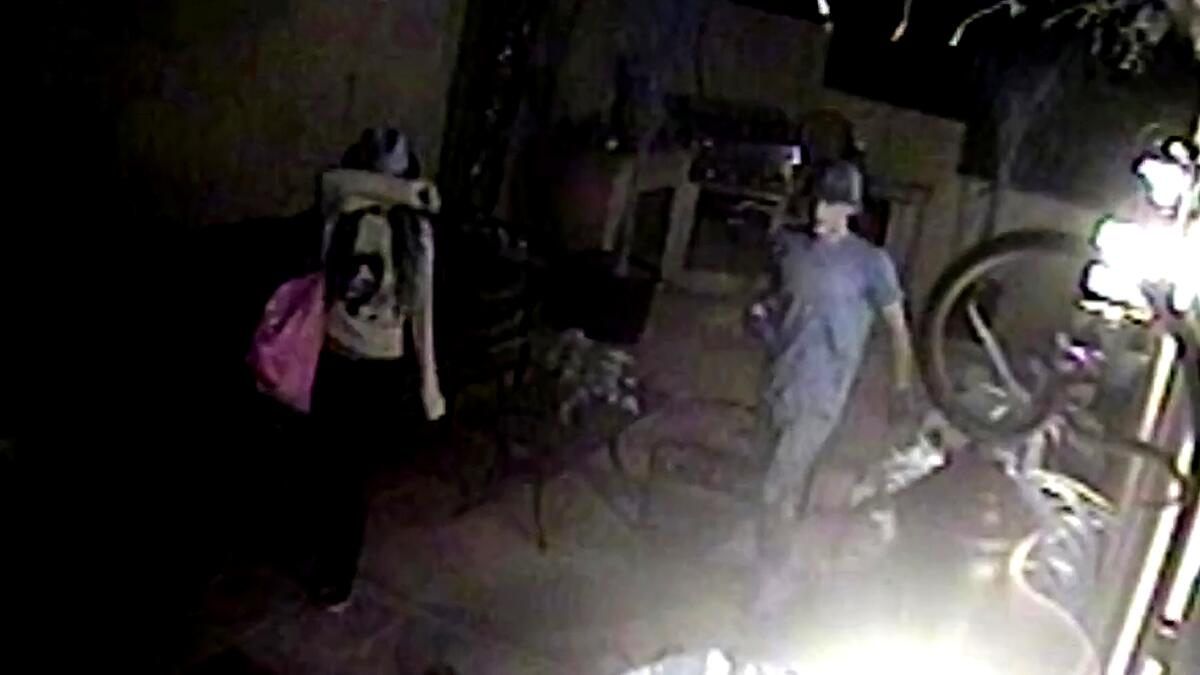
Obviously your name became synonymous with the word “ringleader” over the years when it came to the Bling Ring. Is there any truth to that label or is it just a part of the narrative that grew over the years?
Lee: I only identified [with] it because that’s what the media called me for so long. They almost convinced me for one moment that I was, but then I had to snap myself back to reality. Everyone is responsible for their own actions. I never forced anyone to do anything. And so to be honest, I feel like it was unfair.
Carr: It wasn’t the media, it was the other people [that were] a part of the group. The media just reflected back what the members of the group were saying. And that was what Nick [Prugo] was saying.
Lee: Exactly. I was angry at the time. Now I’ve forgiven. But at the time I was so angry because I’m like, you’re going to blame it all on me, what are you doing, dude? Come on. Admit what you did. Same with you, Alexis.
What’s interesting about the documentary is it doesn’t go into a lot of detail about your life now — visually we see Rachel cleaning a station at a salon, but it’s not really discussed. Was that a purposeful choice on your parts to limit information about Rachel’s personal life?
Carr: Yeah, I think that I’m always interested in the days before the crime, the crime and the observation after. So, I wanted to keep a semblance of Rachel’s privacy intact, and I think that that’s part of it.
I think people who are watching it are going to be left trying to discern whether you have changed. Do you believe people can change?
Lee: To a degree, yes. I don’t know how much, because each person is different, but I do believe at least one degree a person can change.
Carr: I believe so wholeheartedly, so intensely in the core of my being that people can change. I’ve seen so many people in my mind fundamentally change once they took inventory of themselves. And I do want to bring up, it’s a fun movie, but we do not forget that this is a crime, and we’re discussing a crime. It was really important to include that a couple of the people who were burglarized never went back to their house.
We had this stuff in the interview where she really didn’t want to talk about being in the houses. She just was like, “I felt nervous. I felt nervous.” And I was like, “No, no, no, you are holding back. You are not telling me actually what’s happening because you programmed yourself to never go back to those houses in your mind. I need you to do that because otherwise, the people that felt victimized by you will think this is fluff.” It took a lot of trust for us to get there. It has to be, “I know what I did, and I take it accountability.”
There’s an iconic line in Sofia Coppola’s “The Bling Ring” where your supposed on-screen alter ego Rebecca Ahn [played by Katie Chang] says “What did Lindsay say?” after being arrested. Did that really happen?
Lee: So what happened was, I got arrested in Vegas, and I had to wait in my Vegas home all day because LAPD was making their way over to arrest me. Some of the things that they were saying to me were, “This is the game of musical chairs. And all of your friends have spoken so you’re left without a chair. Too bad for you. You should really say something. You don’t want to go to prison for the rest of your life, right?” I was just like, “I want my lawyer. I want my attorney. I’m not talking to you guys.” But basically, when we were walking out, the woman cop said, “We’ve talked to everybody. You’re done, girl. You’re done.” And so she said, “We even talked to...” And I said, “Who did you talk to?” She said, “We talked to Courtney [Ames], Diana [Tamayo], Nick. We’ve spoken to some of the celebrities. We talked to Lindsay [Lohan] today.” I said, “What’d she say?” That’s all that happened. And then they turned all of that into this official, “What did Lindsay say?”
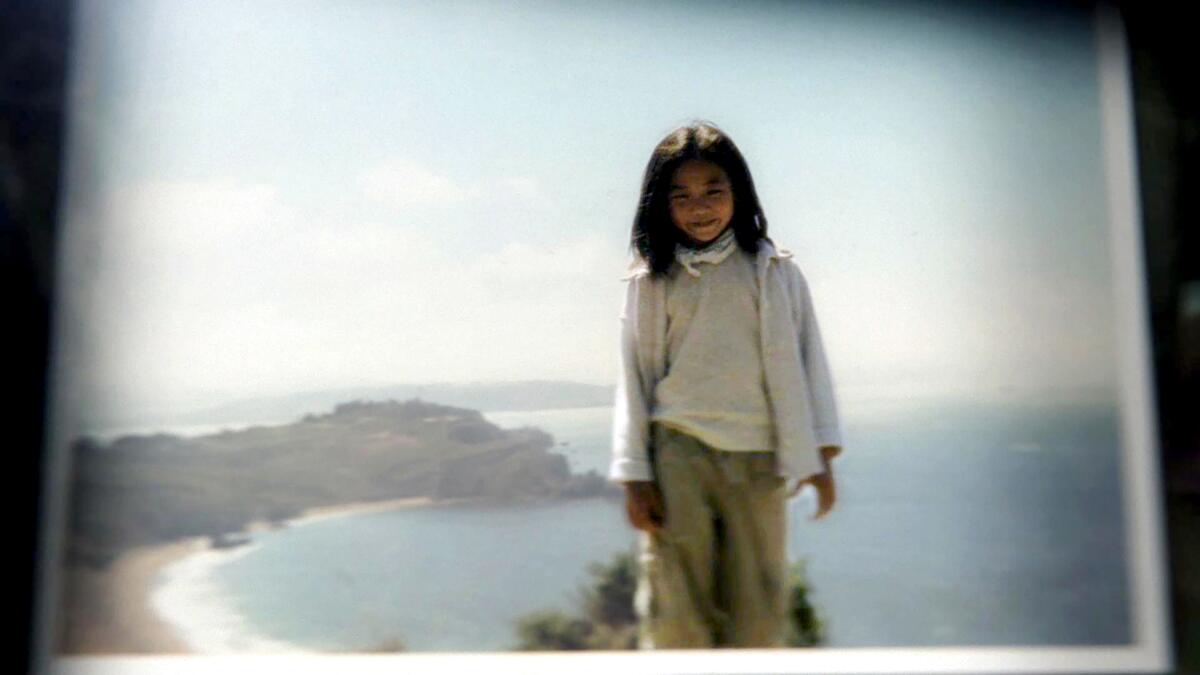
Rachel, what do you hope comes out of you finally speaking out in this documentary?
Lee: The reason why I did this is because I like to hide. I’ve been that way since a kid. But I have big emotions, and a huge part of me felt like if I have all these big emotions and I can’t talk about them, what will happen to me? What kind of life, what kind of outcome? I feel like that’s how sicknesses and illnesses and depressions come. I felt like, well, I acknowledge that I really messed up in my past, but does that mean I don’t deserve a second chance? So I want to use myself as an example. I want to be a conversation starter. I just wanted more communication and connectedness in this world for me.
Erin, what do you want people to get out of this documentary?
Carr: Take the information and decide for yourself. I provide the information, with music with all these things, but also so that when people watch this, it’s not me telling them what to think, it’s how they feel.
More to Read
The complete guide to home viewing
Get Screen Gab for everything about the TV shows and streaming movies everyone’s talking about.
You may occasionally receive promotional content from the Los Angeles Times.
